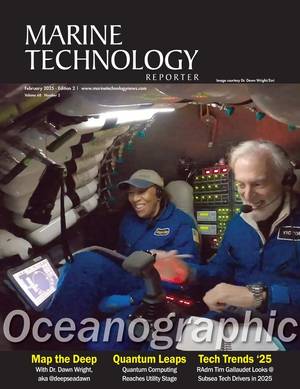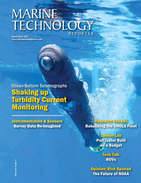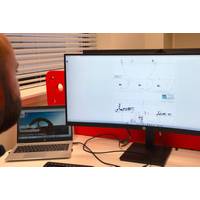
MDL to Support Maersk Supply Service for Work at Mero Field Off Brazil
Manager for Maersk Supply Service Brazil.The operation of the Mero field is conducted by the Libra Consortium, operated by Petrobras (38.6%), in partnership with Shell Brasil (19.3%), TotalEnergies (19.3%), CNPC (9.65%), CNOOC (9.65%) and Pré-Sal Petróleo S.A (PPSA) (3.5%), as the Brazilian Government's representative in the non-contracted area

TechnipFMC Bags $1B Contract with Petrobras
its partners in the Libra Consortium.The Libra Consortium consists of Petrobras as operator (38.6%), Shell Brasil Petróleo (19.3%), TotalEnergies EP Brasil (19.3%), CNOOC Petroleum Brasil (9.65%), CNODC Brasil Petróleo e Gas (9.65%); and Pré-Sal Petróleo (3.5%), as the Brazilian government's representative in the non-contracted area

Brazilian Beaches Hit by Second Oil Spill
with community tourism in the area.Rivelino Cavalcante, an ocean researcher at the Federal University of Ceará, told news website G1 that a large quantity of the same oil that appeared on beaches earlier this year still lay in the seabed and was moving to shore because of ocean currents.Brazilian government officials have said that tests indicated Venezuela as the probable origin of the oil. The country dismissed that assertion.(Reporting by Marcelo Teixeira; Editing by Peter Cooney
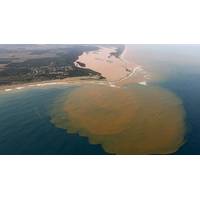
Toxic Mud from Dam Collapse Affects Coral
tragedy. The study highlighted that more than three years after the rupture and collapse of the Fundão dam, the environmental damage caused by the mining companies have not yet been fully measured and contained, both inland and offshore. Do to the negligence of the mining companies and the Brazilian government, ecosystems will continue being contaminated and degraded. The risk is that the fragile ecological balance that favors coral formation may be affected, for example with the proliferation of other harmful organisms. Only long term monitoring will ascertain the level of environmental impact
A New Reef Biome Under the Amazon Plume
companies. In the past decade, a total of 80 exploratory blocks have been acquired for oil drilling in the study region, 20 of which are already producing. These blocks will soon be producing oil in close proximity to the reefs, but the environmental baseline compiled by the companies and the Brazilian government is still incipient and largely based on sparse museum specimens. Such large-scale industrial activities present a major environmental challenge, and companies should catalyze a more complete social-ecological assessment of the system before impacts become extensive and conflicts among the
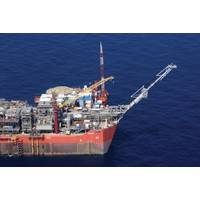
Floating Production's Future: The 6 Things You Need to Know Now
are obviously being felt. In March Petrobras announced plans to lay off 12,000 staff – a 15% personnel reduction. Reports are circulating that the (already downsized) plan to invest $93 billion in capital projects over the next five years looks about to be cut to $80 billion. The Brazilian government is dealing with many problems and is increasing unable to provide financial backup to Petrobras. The Brazilian economy is deteriorating at an alarming rate – with GDP falling 3.8% in 2015, expectations of a similar decline this year and unemployment nearing 10%. One piece of good news
Brazil to Hold New Subsalt Oil Auction by 2017
The Brazilian government plans to hold a new oil bidding round for areas in the subsalt polygon by 2017, the secretary of oil and gas at the Mines and Energy Ministry, Marco Antonio Almeida, said on Monday. Almeida denied during a presentation in Rio that the current corruption scandal plaguing state oil company Petrobras was delaying the auction being held sooner. (Reporting by Marta Nogeira; Writing by Reese Ewing; Editing by Phil Berlowitz)
Broadband Seismic for Enhanced Pre-salt Imaging
Survey covering the major Lula, Carioca and Jupiter discoveries, whilst a 16,000 km 2 Cluster extension Survey covers an area with predominantly unlicensed acreage with significant reservoirs, which are mostly now part of the Onerous Transfer of Rights Agreement, between Petrobras and the Union (Brazilian Government). BroadSeis Technology CGG’s BroadSeis technology is based on a marine broadband seismic data acquisition system, combining the use of sensitive low-noise Sercel Sentinel streamers configured to optimally curved, variable-depth, streaming profiles, with an average depth of over
Brazil to Hold Next Oil Rights Auction in 2015
that the auction will sell blocks under a concession system. The areas for auction will be outside the so-called Subsalt Polygon, where oil is trapped beneath the seabed by a layer of salt, and where under Brazilian law exploration can only be done on production-sharing contracts with the Brazilian government. (Reporting by Jeb Blount and Marta Nogueira; Writing by Stephen Eisenhammer; Editing by Jeffrey Benkoe
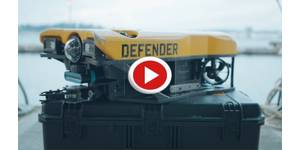
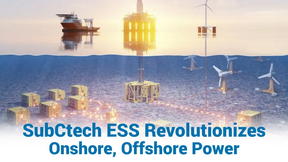
 February 2025
February 2025
